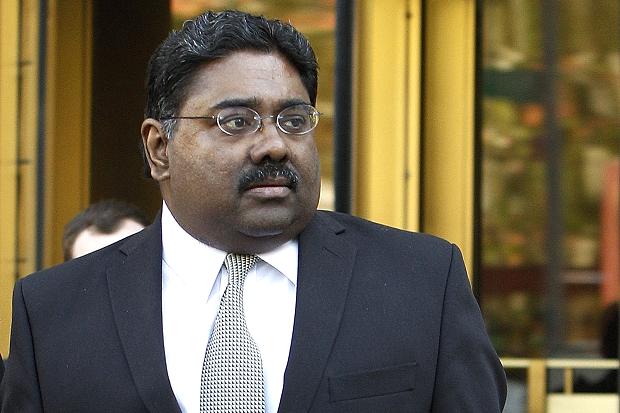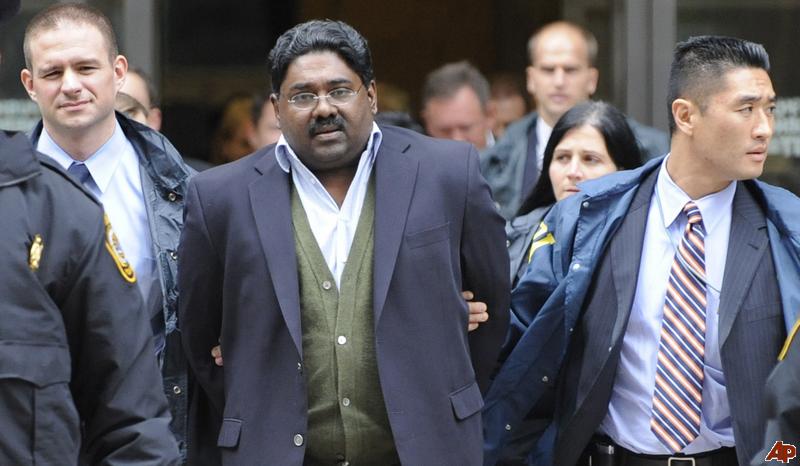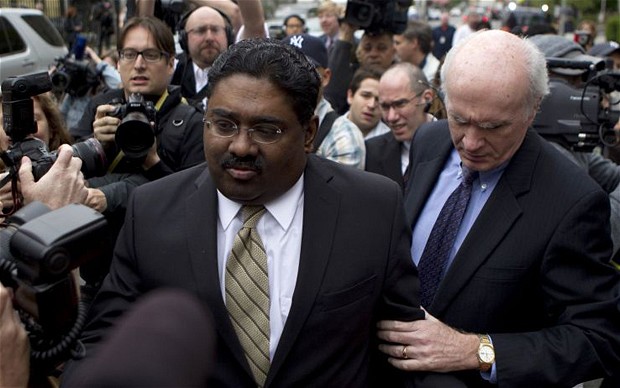It was the year 2008. I went through Forbes’ “The 400 Richest Americans” list and read about each billionaire. One name that intrigued me and stood out on the list was that of Raj Rajaratnam, an investment manager from New York. His net worth was estimated to be 1.8 billion and ranked 262 on the list. Rajaratnam is a common Tamil name and I have relatives by the same surname. I started looking up more information.
I have been a small time retail investor fascinated by the intellectual challenge of investing. Being a student of the market exhilarated and humbled me. It was not surprising that I was interested in learning more about Raj Rajaratnam. It turned out Rajaratnam and I shared many things in common. He is a Tamil from Sri Lanka like me. He left Sri Lanka at a young age and got his education in the West like me.
Rajaratnam worked as an investment analyst before starting out on his own. He started a hedge fund called Galleon Group that focused on the technology and health care sector. His flagship product, Diversified Fund, had an annualized return of more than 22% in 2009. He was considered one of the star hedge fund managers who survived and succeeded in the shark-eat-shark world of Wall Street. He contributed to various causes and charities including to people affected by the tsunami in Sri Lanka. His story was an inspirational, feel-good rags-to-riches story. Soon he became my invisible role model along with Warren Buffet and Steve Jobs. I was terribly proud of him. I did not know why. Maybe because of our common heritage, I thought.
I read whatever that appeared on newspapers about Rajaratnam. For me, he epitomized the success of an immigrant and the industriousness of Tamils. He did not become a billionaire due to political connection or inheritance. He got there through education, diligence and hard work. His flagship fund’s return of 22% beat the market by a high margin and performed much better than the average hedge fund. His fund’s high performance intrigued me. I wondered what his secret ingredient was.
It turned out that one of his secret ingredients was insider trading. Insider trading is a faceless crime. You buy and sell company stocks based on information that is not available to the public. It affects millions of people – from a single mother who saves and invests money for her child’s education to the worker who toiled on the factory floors for 40 years and sees his retirement disappear. It is an unfair game where the information privileged have an edge. Insider trading makes people lose faith in capitalism in general and stock market in particular.
Rajaratnam had been charged with insider trading and sentenced to 11 years in prison. He was asked to cooperate with the government to pin point other successful South Asians involved in the insider trading for a lesser sentence. However, he did not. In an interview with Newsweek , he explained his defiance to his upbringing as a minority Tamil in Sri Lanka and his journey as a dark-skinned immigrant through rich countries. Overall, he had accepted that the American justice system was fair. Rajaratnam was not the first one to be convicted of insider trading. There were many before him and there will be many after him. And there are many who still trade on non-public information shared at golf courses or through expert networks. Many of them go undetected. Sure, Rajaratnam was my distant role model at one point but not any longer. He set a bad example for me and everyone else to follow.

 Ron
Ron








